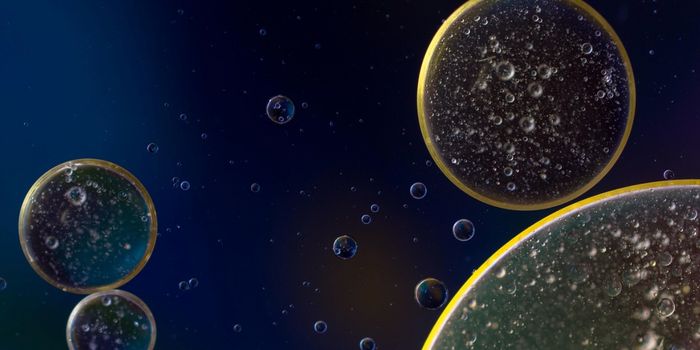Alcohol Consumption Linked to Epigenetic Changes in Brain Memory System
For a recovering alcoholic, walking by a familiar bar or attending social events can be challenging situations. This is because stimuli associated with alcohol – such as the sight of a glowing neon bar sign or running into an old drinking buddy – can trigger memories of past drinking, leading to an intense need for alcohol and relapse.
Now, scientists have figured out how alcohol use drives changes in the brain that lead to relapse, specifically by linking alcohol metabolism to epigenetic regulation.
Once consumed, alcohol is broken down by the liver into several chemical byproducts, including acetate. In a paper published in Nature, a team led by the Perelman School of Medicine at the University of Pennsylvania found that (in a mouse) acetate travels to the brain and alters proteins that regulate DNA, known as histones. Histone modification is an epigenetic change that impacts how some genes are expressed and ultimately affects behavior.
"It was a huge surprise to us that metabolized alcohol is directly used by the body to add chemicals called acetyl groups to the proteins that package DNA, called histones," said the study's senior author Dr. Shelley Berger, the Daniel S. Och University Professor in the departments Cell and Developmental Biology and Biology, and director of the Penn Epigenetics Institute. "To our knowledge, this data provides the first empirical evidence indicating that a portion of acetate derived from alcohol metabolism directly influences epigenetic regulation in the brain."
In the study, Dr. Philipp Mews, a former graduate student in the Berger lab who is now a postdoctoral fellow at Mount Sinai, and Dr. Gabor Egervari, a postdoctoral fellow in Berger's lab first used stable-isotope labeling of alcohol to reveal that alcohol metabolism directly deposits acetyl groups onto histones – a process called histone acetylation – via an enzyme named ACSS2.
ACSS2 'fuels' a whole machinery of gene regulators 'on-site' in the nucleus of nerve cells to turn on key memory genes that are important for learning, authors said.
Next, researchers wondered if there was a link between histone acetylation (via ACSS2) and alcohol-related memories.
In an additional experiment, mice were exposed to “neutral” and alcohol rewards in two different compartments of a special behavior apparatus distinguished by environmental cues. If mice properly formed alcohol-related memories, when given a memory test, they should prefer (or spend more time in) the compartment where they drank alcohol in the past. Indeed, during the test, mice with normal ACSS2 levels preferred the alcohol-paired side, whereas mice with reduced ACSS2 levels in brain regions important for learning and memory, such as the hippocampus, did not show a compartment preference.
"This indicates to us that that alcohol-related memory formation requires ACSS2," Egervari said. "Our molecular and behavioral data, when taken together, establish ACSS2 as a possible intervention target in alcohol use disorder – in which memory of alcohol-associated environmental cues is a primary driver of craving and relapse even after protracted periods of abstinence."
Thus, interfering with ACSS2 could be a way to dampen the formation or influence of powerful alcohol-related memories in those suffering from alcohol addiction.
Researchers also explored how alcohol consumption in pregnant mice affected the brains of their developing pups and found similar alcohol-induced epigenetic changes in fetal brains during early neural development. Although manipulating a key enzyme in humans is far-fetched, results from this study could inform treatments for alcohol-use disorder and fetal alcohol syndrome.
Sources: Genetic Engineering & Biotechnology News, EurekAlert!, ScienceDaily









